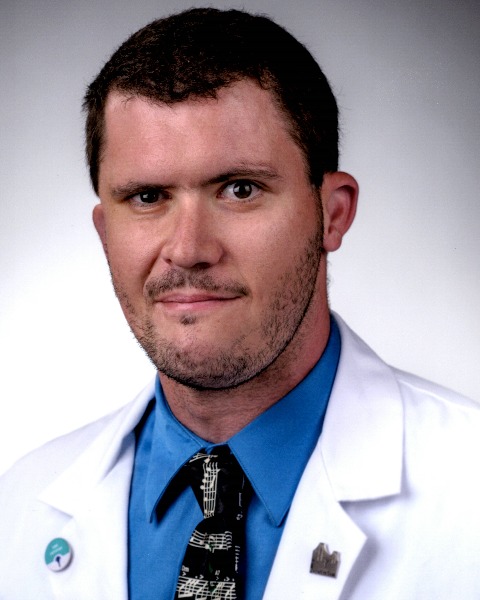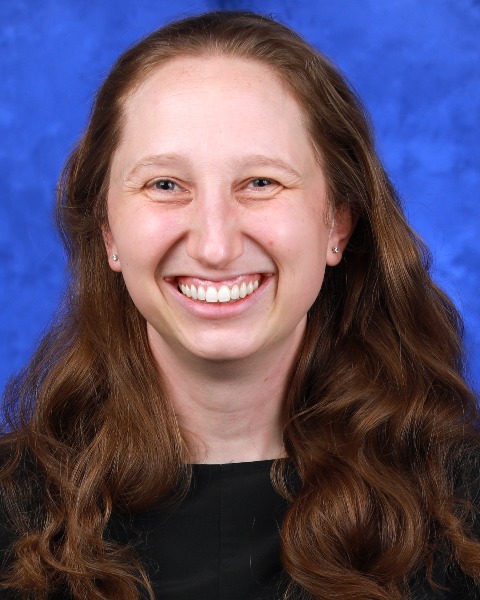
Diversion 101: Preventing, Identifying and Addressing Diversion in the Outpatient Setting
-
Register
- Non-Member - $39
- Regular Member - $29
- Retired - $29
- Early Career Physician - $29
- Resident - $19
- Student - $19
- Associate - $19
- ASAM Staff - Free!
- International Member - $29
- Emeritus Member - $29
- Provisional Member - $29
- Fellow Member - $29
- Honorary Member - $29
- CRT Member - $29

Diversion 101: Preventing, Identifying and Addressing Diversion in the Outpatient Setting
Recorded: Thursday, April 13, 2023 to Sunday, April 16, 2023
On-Demand Session
Overview
This 75-minute on-demand session from the ASAM 54th Annual Conference addresses the epidemiology of diversion, as well as the ethical and societal impacts of diversion and policies aimed at limiting diversion.
Diversion of prescribed medication is common, particularly in individuals with SUDs, where stigma and social determinants of health may limit access to medications for opioid use disorder (MOUD). Participants will learn about the epidemiology of diversion, as well as the ethical and societal impacts of diversion and policies aimed at limiting diversion. Through a mix of case discussions, audience question and answer, and short didactics, participants will come away with new strategies for preventing and addressing diversion.
The target audience for this introductory level session includes physicians, nurse practitioners, physician assistants, other clinicians, researchers, residents, fellows, students, and counselors.
This session addresses the following ACGME Competencies: Patient Care and Procedural Skills, Practice-based Learning and Improvement, Interpersonal and Communication Skills, Professionalism, Systems-based Practice
This session addresses the following IOM Competencies:Provide patient-centered care, Employ evidence-based practice, Apply quality improvement, Professionalism
Learning Objectives
Upon completion, learners will be able to:
- list the most common reasons why patients divert prescribed medications.
- describe a universal precautions approach to medication diversion that fits their patient population, including patient education, pill counts, call-backs, and other strategies.
- discuss diversion directly and non-punitively with patients
Registration Rates
| Rate Description | Rate |
| ASAM Member | $29 |
| Non-Member | $39 |
| Associate Member | $19 |
| Resident Member* | $19 |
| Student Member* | $19 |
*Residents, Fellows-in-training, Interns, and Students must join ASAM to receive a discounted registration rate. Click here to become an ASAM member. National and Chapter membership dues apply. There is no charge for Students to become a Member, but verification of student status is required.
Membership Question? Call ASAM at 1.301.656.3920, email us, or view the ASAM website for more information.
Refunds & Cancellations
All ASAM e-Learning Center refund requests must be made in writing to education@asam.org within 90 days of purchase. Those requesting refunds for courses that are in progress will receive partial refunds or e-Learning Center credit. Automatic full refunds will be made for any course with a live-course component that has been cancelled.
Registration Deadline: 05/15/2026
Session Instructions
- Click on the Contents tab to watch the on-demand recording.
- Click Complete Post Test to answer multiple choice questions. Participants will have 10 attempts to pass and must answer 4 out of 5 questions correctly.
- Click Complete Evaluation to provide valuable activity feedback. Scroll down on all questions as there may be answer options that expand past the size of the window.
- Click the button Claim Medical Credits in the box titled Claim Credits & Certificate. Choose the type of credit and click submit. Click the button View/Print Certificate to save or print your certificate. You can view/print your certificate at any time by visiting the ASAM eLearning Center, clicking Dashboard, and clicking Transcript/Achievements.
Need Assistance?
For assistance logging in, accessing activities, claiming credit, or for other questions or concerns, please check the FAQ page or e-mail Education@ASAM.org
ASAM is proud to offer Essential Accessibility to ensure our website is accessible and functional for all our learners while providing free assistive technology for people with the widest possible range of abilities.

Julie Childers
MD
Julie Childers is an addiction medicine and palliative care physician at the University of Pittsburgh, where she developed and now directs the Addiction Medicine Fellowship. She has written and taught nationally in the areas of managing addiction in individuals with serious illnesses, communication, motivational interviewing, and medical ethics. In 2021, she was elected to the University of Pittsburgh School of Medicine's Academy of Master Educators.

Benjamin Thompson, MD
Program Director, Hospice and Palliative Care Fellowship; Addiction Consultant
Prisma Health / University of South Carolina
Ben Thompson, MD, works at Prisma Health / The University of South Carolina as the director of the Hospice and Palliative Care Fellowship. He is board certified in Family Medicine, Hospice and Palliative Care, and Addiction Medicine. His passion is providing whole-person care to patients facing life-limiting illnesses, navigating the healthcare system and advocating for the best care possible for his patients. He is a passionate educator and was recently honored with a Palliative Care Innovation award for creating an internationally recognized virtual didactic series for hospice and palliative care professionals. His current research interest is providing optimal symptom management for patients with opioid use disorder and another life-limiting illness with the principles of harm reduction and risk mitigation.

Monika Holbein, MD
Assistant Professor of Medicine
Penn State Health
Monika Holbein, MD, is an assistant professor of palliative and hospice medicine at Penn State Hershey Medical Center. She is passionate about the intersection of serious illness and substance use disorder and continues to work with colleagues across the country to impact the knowledge of healthcare professionals. She is co-chair of Managing Addiction, Pain, in Palliative Care Interdisciplinary Team (MAPPIT) a group that brings health care professionals across disciplines together to discuss. She has seen herself grow and learn both personally and professionally in becoming a better teacher, mentor and student as a result of this.

Janet J. Ho
MD, MPH
Janet Ho, MD MPH is a board-certified palliative medicine and addiction medicine physician at the University of California, San Francisco. She completed internal medicine training and chief residency at Yale, and fellowships in health services research, palliative care, and addiction medicine at Harvard and Massachusetts General Hospital in Boston, MA. Her clinical and research interests lie at the intersection of serious illness, the disease that is addiction, pain, and chronic cancer pain. Dr. Ho is dedicated to improving provider knowledge and confidence in primary palliative care and addiction medicine; improving disparate quality of life and care for patients with serious illness and addiction; understanding the role of buprenorphine in palliative care; and challenging stigma against patients who use drugs.
CME, CE, CEU and Other Credit Types

ACCME Accreditation Statement
The American Society of Addiction Medicine is accredited by the Accreditation Council for Continuing Medical Education (ACCME) to provide continuing medical education for physicians.
AMA Credit Designation Statement
The American Society of Addiction Medicine designates this enduring material for a maximum of 1.25 AMA PRA Category 1 Credits™. Physicians should claim only the credit commensurate with the extent of their participation in the activity.
NAADAC, the Association for Addiction Professionals
This activity has been approved by the American Society of Addiction Medicine, as a NAADAC Approved Education Provider, for educational credits. NAADAC Provider #295, ASAM is responsible for all aspects of the programming.
California Association for Drug/Alcohol Educators (CAADE)
This educational program is approved by CAADE: #CP40 999 1225.
California Association of DUI Treatment Centers (CADTP)
This educational program is approved by CADTP: #205.
California Consortium of Addiction Programs and Professionals (CCAPP)
This educational program is approved by CCAPP: #OS-20-330-1224.
Continuing Education Credits (CEUs)
Non-physician participants will receive a certificate of attendance upon completion of the activity and an online evaluation confirming their participation. Participants should submit his/her certificate of attendance to their professional organization/institute.
Maintenance of Certification / Continuing Certification Program
American Board of Preventive Medicine (ABPM)
The American Board of Preventive Medicine (ABPM) has approved this activity for 1.25 credits towards ABPM MOC Part II requirements.
American Board of Anesthesiology (ABA)
This activity contributes to the CME component of the American Board of Anesthesiology’s redesigned Maintenance of Certification in Anesthesiology TM (MOCA®) program, known as MOCA 2.0®.
American Board of Pediatrics (ABP)
Successful completion of this CME activity, which includes participation in the activity, with individual assessments of the participant and feedback to the participant, enables the participant to earn 1.25 MOC points in the American Board of Pediatrics’ (ABP) Maintenance of Certification (MOC) program. It is the CME activity provider’s responsibility to submit participant completion information to ACCME for the purpose of granting ABP MOC credit.
American Board of Internal Medicine (ABIM)
Successful completion of this CME activity, which includes participation in the evaluation component, enables the participant to earn 1.25 Medical Knowledge MOC points in the American Board of Internal Medicine’s (ABIM) Maintenance of Certification (MOC) program. Participants will earn MOC points equivalent to the amount of CME credits claimed for the activity. It is the CME activity provider’s responsibility to submit participant completion information to ACCME for the purpose of granting ABIM MOC credits.
American Board of Surgery (ABS)
Successful completion of this CME activity, which includes participation in the evaluation component, enables the learner to earn credit toward the CME and/or Self-Assessment requirements of the American Board of Surgery’s Continuous Certification program. It is the CME activity provider's responsibility to submit learner completion information to ACCME for the purpose of granting ABS credit.
American Board of Psychiatry and Neurology (ABPN)
Successful completion of this CME activity can be used to satisfy the American Board of Psychiatry and Neurology’s (ABPN) CME requirement for Maintenance of Certification program.
American Board of Addiction Medicine (ABAM)
Successful completion of this activity can be used to satisfy the American Board of Addiction Medicine (ABAM) for Tmoc as credits towards ABAM LLSA Part II requirements.
Royal College of Physicians and Surgeons of Canada (RCPSC)
Royal College Fellows can use participation in Accredited Continuing Medical Education to earn Section 3 Credits.
Disclosure Information
In accordance with disclosure policies of ASAM and the ACCME, the effort is made to ensure balance, independence, objectivity, and scientific rigor in all CME/CE activities. These policies include mitigating all possible relevant financial relationships with ineligible companies for the Planning Committees and Presenters. All activity Planning Committee members and Presenters have disclosed relevant financial relationship information. The ASAM CE Committee has reviewed these disclosures and determined that the relationships are not inappropriate in the context of their respective presentations and are not inconsistent with the educational goals and integrity of the activity.

